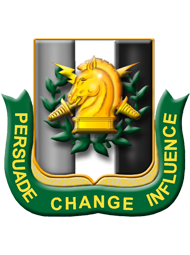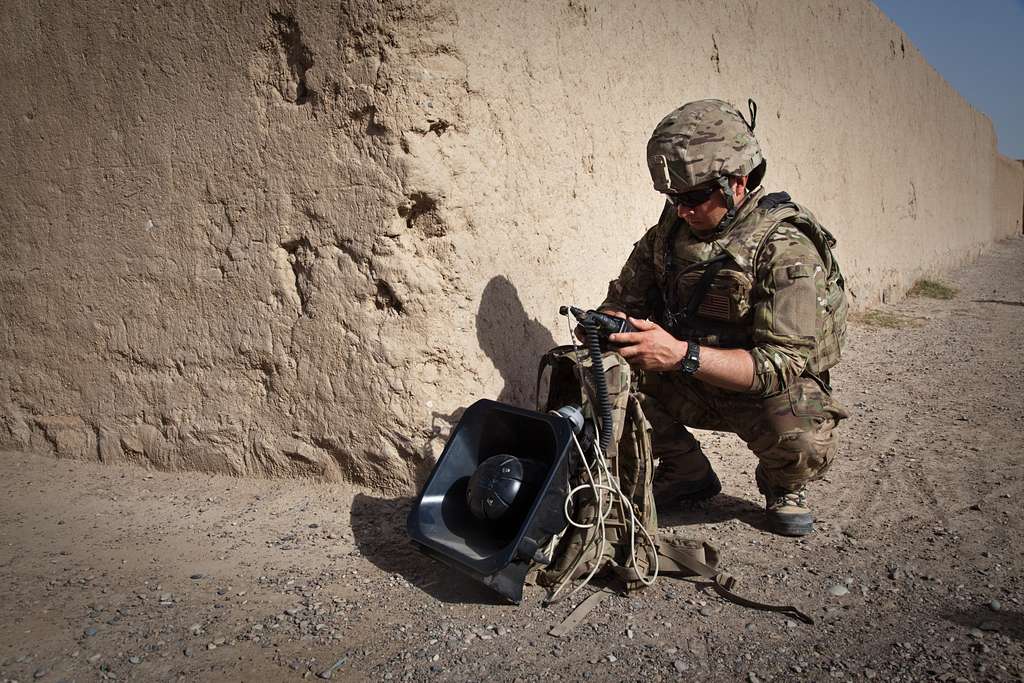Army Reserve Psychological Operations FAQs:

As an Army Reserve Psychological Operations (PsyOp) Soldier, you will become an expert at persuasion. You will assess and develop the information needed to inform, educate, persuade, direct, and influence foreign audiences and populations. You'll broadcast important information through various mediums to directly and indirectly engage foreign governments, militaries, and civilian populations.

U.S. Army Spc. Josh Brimm, assigned to the 307th TPC, plays a counter improvised explosive device message on a loud speaker during a mission to patrol the villages around Malajat, Afghanistan, on June 3. The purpose of the mission is to gather atmospherics from the local population, and to distribute Psychological Operations flyers and radios.
Collapse All Expand All

 Are there special qualifications to join?
Are there special qualifications to join?
Psychological Operations Officers (37A) generally begin at the rank of First Lieutenant or Captain; possess a Physical Profile Serial System PULHES 111221, and are required to have a Top Secret (TS) security clearance eligibility. 37F enlisted must have a minimum ASVAB ST score of 101 after 01 July 2004 or a GT score of 105 for those joining after 01 July 2020. Enlisted Soldiers must also be eligible for a Secret security clearance.

 What are Psychological Operations Soldiers?
What are Psychological Operations Soldiers?
As well as being technically and tactically proficient, Psychological Operations Soldiers are subject matter experts in the psychological aspects of warfare, the influencing of individuals and groups, joint and interagency operations, planning, operations, and intelligence. They understand the concept of the human domain and operations conducted within that domain, and further understand and are capable of employing Army and joint doctrine in planning and operations. PSYOP Soldiers are also capable of planning and conducting Military Information Support Operations (MISO) at the tactical, operational, and strategic levels across the competition continuum.

 What does a Psychological Operations Officer (37A) do?
What does a Psychological Operations Officer (37A) do?
Officers in the Psychological Operations career field plan, coordinate, and manage the execution of Psychological Operations, understand the human domain and operations conducted within, are proficient in tactical-level operations, are capable of planning and conducting MISO at the tactical, operational and strategic levels, and are experts in the psychological aspects of warfare and influence. Officers within the PO branch initially serve as PYSOP Detachment Leaders. PO training includes Psychological Operations Captains Career Course (CCC) and Military Occupational Specialty (MOS) Qualification. CCC is conducted as a three-phase course. Phase 1 (resident) is 4 days and only required if the officer has no prior CCC. If the officer has completed a prior CCC, then it is necessary to only complete Phase 2 and Phase 3. Phase 2 (non-resident) is 18 weeks of facilitated distance learning and Phase 3 is 29 days resident training at Ft. Bragg, N.C.

 What incentives are there?
What incentives are there?
Incentives vary according to unit, location, and current policy, but can include enlistment and affiliation bonuses, lodging at home station, reimbursement of travel expenses (dependent on distance to home station), foreign language proficiency pay, jump pay, tuition assistance, education benefits, eligibility for Tricare Reserve Health and Dental, and the Army Reserve Retirement Savings Plan.

 What opportunities do PSYOP Soldiers have?
What opportunities do PSYOP Soldiers have?
Psychological Operations Soldiers attend annual training events and overseas exercises in joint and multi-national environments. Based on unit requirements, there may be opportunities for language training, airborne school, or additional military education. Missions can include humanitarian relief efforts, liaison to civilian support agencies, provision of nonlethal effects of influence, a deep knowledge base of culture, people and language, as well as offering support of synchronized efforts between the U.S. military and host nation governments and organizations.